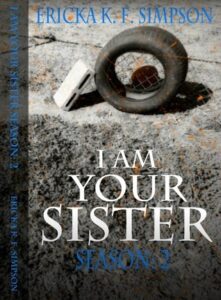Publisher/Date: Houghton Mifflin Harcourt, Sept. 2015
Genre(s): Romance, Coming of Age
Pages: 336
Website: http://www.chinelookparanta.com
Rating: 




I love coming-of-age stories. The transition one makes from child to adulthood is an evolution I watch with fascination. Ijeoma’s growing up is especially captivating because the 11-year-old lives with the threat of falling bombs, food rations and army takeovers during the Nigerian Civil War in UNDER THE UDALA TREES by Chinelo Okparanta (author of Happiness Like Water).
Set in the town of Ojoto, the time is 1968, and the juxtaposition of her typical experiences of a girl her age – attending school and watching the boys play Policeman – contrasts sharply with worries of her father, a drafter obsessed with any report about Biafra’s attempt to defeat the government. Ijeoma sees him poring over newspapers that line his study or listening to his radio-gramophone, and prays for an end to the conflict so that her father, as well everyone around them, can return to normal life.
A subsequent attack leaves Ijeoma fatherless, and fearing her daughter’s safety and well-being, her mother sends her to be a housegirl to a grammar school teacher and his wife in neighboring Nnewi. An adjacent hovel with only a table and mattress – no bathroom or running water – becomes her new home, and Ijeoma has to contend with her new surroundings as well as her mother’s abandonment to prepare them a new life.
Working for the childless couple proves mindless, until she meets Amina, a girl about her age whom she discovers has no family, and luckily, convinces her caretakers they could use an extra pair of hands with chores. They share Ijeoma’s small confines, but it’s where their attraction begins to blossom. Ijeoma and Amina come from different tribes – Ijeoma is Igbo, Amina is Hausa – but they shyly explore the other under the moonlight and stars while taking nighttime baths. Both without family, both working to earn their keep, the girls begin a love affair that sustains them and blinds them to the danger of being found out – until they are found out – and then Ijeoma returns to the care of her mother.
This is where Udala finds its footing. Ijeoma becomes bombarded with the decisions of whether being gay is God’s will or an abomination as her as her mother emphasizes with daily Bible studies and incessant scripture quoting. Her questioning of God’s word leads her to believe that the world is not as black and white as the pages of her Bible, but her mother sees her daughter’s life only in terms of being married and having children. Ijeoma is reluctant to take this path, but it seems the only way out in a country where being gay can be a destructive decision to make.
Under the Udala Trees is a lot of things: a coming-of-age tale, an exploration of Nigerian folklore, an examination of religious doctrine. But quite simply, at its heart, Trees is a bittersweet love story written incredibly well by Okparanta. While the religious overtones can sometimes bog down the story, it leads to Ijeoma becoming introspective about what God sincerely wants. I found the story, despite its somber nature, to be hopeful with every page toward the novel’s end. I can’t put my finger on it, but there’s something about Trees that makes me feel as if Ijeoma finds her happy ending.
Reviewed February 2016







